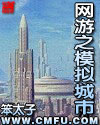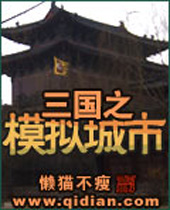英语模拟考场10套-第4部分
按键盘上方向键 ← 或 → 可快速上下翻页,按键盘上的 Enter 键可回到本书目录页,按键盘上方向键 ↑ 可回到本页顶部!
————未阅读完?加入书签已便下次继续阅读!
the moral content of what we are invited to watch; I think we should begin by examining our own consciences。 When we tune in; are we ready to plunge into reality; so as to extract its meaning; or are we hoping to escape into a sedated world of illusion? And if church leaders want to elevate the quality of the country’s entertainment; they should forget about boycotts; production codes and censorship。 They should work at educating their people in media literacy and at mobilizing them to support quality shows in huge numbers。
'E' It is not a question of entertainment or enrichment。 These are complementary concerns and presuppose each other。 The story that entertains without enriching is superficial and escapist。 The story that enriches without entertaining is simply dull。 The story that does both is a delight。
'F' That is the only sure way to improve the moral content of America’s entertainment。
'G' Despite questions of the motivation behind them; the attacks by the President and the Vice President on the moral content of television entertainment have found an echo in the chambers of the American soul。 Many who reject the messengers still accept the message。 They do not like the moral tone of American TV。 In our society only the human family surpasses television in its capacity to communicate values; provide role models; form consciences and motivate human behavior。 Few educator; church leaders or politicians possess the moral influence of those who create the nation’s entertainment。
Order:
G 41 42 43 44 45 F
Sample Three
Direction:You are going to read a text about New Rules for Landing a Job; followed by a list of examples。 Choose the best example from the list A…F for each numbered subheading (41…45)。 There is one extra example which you do not need to use。 Mark your answers on ANSWER SHEET 1。 (10 points)
When Nick A。 Corcodilos started out in the headhunting business 20 years ago; he had a keen eye for tracking talent。 From his base in Silicon Valley he would send all…star performers to blue…chip companies like Xerox; IBM and General Electric。 But while he would succeed in his part of the hunt; the job…seekers he located would often fail in theirs。 They were striking out before; during or after the interview。
So instead of simply accounting for talent; Corcodilos began advising job candidates as well。 He helped improve their success ratio by teaching them to pursue fewer companies; make the right contacts and deliver what companies are looking for in an interview。 In his myth…busting book; Ask the Headhunter (Plume; 1997); Corcodilos has reinvented the rules of the job search; from preparation to interview techniques。 Here are his six new principles for successful job hunting:
(41) Your resume is meaningless。
Headhunters know a resume rarely gets you inside a company。 All it does is outline your past…largely irrelevant since it doesn’t demonstrate that you can do the work the hiring manager needs done。
(42) Don’t get lost in HR。
Headhunters try to get around the humanresources department whenever possible。
(43) The real matchmaking takes place before the interview。
A headhunter sends a candidate into an interview only if he or she is clearly qualified for the position。 In your own job hunt; make the same effort to ensure a good fit。 Know the parameters of the job when you walk into the interview。 Research the company; finding out about its culture; goals; competitors。
Remember; the employer wants to hire you。
“A company holds interviews so it can find the best person for the job;” Corcodilos says。 The manager will be ecstatic if that person turns out to be youbecause then he or she can stop interviewing and get back to work。
(44) Pretend the interview is your first day at work。
Most people treat an interview as if it were an interrogation。 The employer asks questions; and the candidate gives answers。 Headhunters go out of their way to avoid that scenario。
(45) Got an offer? Interview the company。
When an employer makes an offer; he does more than deliver a title and a compensation packagehe also cedes part of his control over the hiring process。
Once you get that offer; “You have the power;” says Corcodilos; to decide whether; and on what terms; you want to hire that company。
'A' Consider how Corcodilos coached Gerry Zagorski of Edison; N。J。; who was pursuing an opening at AT & T。 Zagorski walked over to the vice president’s marker board and outlined the company’s challenges and the steps he would take to increase its profits。 Fifteen minutes later; as Zagorski wrote down his estimate of what he would add to the bottom line; he looked up at his interviewer。
'B' One of the best ways to learn about a company is to talk to people who work there。 Kenton Green of Ann Arbor; Mich。; used this technique while completing a doctoral program in electrical engineering and optics at the University of Rochester: “I would find an article published by someone in my field who worked at a company I was interested in。 Then I’d call that person and ask to talk; mention my employability and discuss the company’s needs。 One of two things happened: I’d either get an interview or learn we weren’t a good match after all。”
'C' “Most HR departments create an infrastructure that primarily involves processing paper;” Corcodilos says。 “They package; organize; file and sort you。 Then; if you haven’t gotten lost in the shuffle; they might pass you on to a manager who actually knows what the work is all about。 While the typical candidate is waiting to be interviewed by HR; the headhunter is on the phone; using a back channel to get to the hiring manager。”
'D' “At the outset of the interview; the employer controls the offer and the power that comes with it;” Corcodilos says。 “But upon making an offer; he transfers that power to the candidate。 This is a power few people in that situation realize they have。 It’s the time for you to explore changing the offer to suit your goals and fully interview the company。”
'E' “The guy’s jaw was on the floor;” Corcodilos says。 “He told Zagorski that finishing the interview wouldn’t be necessary。 Instead; the VP brought in the rest of his team; and the meeting lasted for two hours。”
'F' “A resume leaves it up to employers to figure out how you can help their organization;” Corcodilos says。 “That’s no way to sell yourself。”
Sample Four
Directions:You are going to read a list of headings and a text about Backlogs of History。 Choose the most suitable heading from the list A…F for each numbered paragraph (41…45)。 The first and last paragraphs of the text are not numbered。 There is one extra heading which you do not need to use。 Mark your answers on ANSWER SHEET 1。 (10 points)
'A' Passion for personal and familial archival collection。
'B' Reception of a hospital delivery bill。
'C' Overabundance of trivial personal documents。
'D' Explosion of public documents。
'E' It is imperative to put archival policies into perspective。
'F' What tactics should be adopted in document…saving?
One morning a few years ago an envelope arrived from my parents containing the bill from New Rochelle Hospital for my delivery; in 1952。 The contents of a basement or attic were being culled; and the bill had turned up in one of the many cardboard reliquaries that have long lent a kind of ballast to my childhood home。 The hospital’s total charge for a five…day stay including drugs and phone calls; came to 187。86。 I was amazed at the cost; to be sure。 But I was also struck by something else: that among all those decades’ worth of family documents my parents had looked through; the delivery bill was the only thing they thought of sufficient interest to pass along。
41
At some point most of us realize that having a personal archival strategy is an inescapable aspect of modern life: one has to draw the line somewhere。 What should the policy be toward children’s drawings and report cards? Toward personal letters and magazine clippings? People work out answers to such questions; usually erring; I suspect; on the side of overaccrual of rubbish documents。 Almost everyone seems to save — or “curate;” as archaeologist says — issues of National Geographic。 That is why in garbage landfills copies of that magazine are rarely found in isolation; rather; they are found in herds; when an entire collection has been discarded after an owner has died or moved。
42
I happen to be an admirer of the archiving impulse and an inveterate archivist at the household level。 Though not quite one of those people whom public…health authorities seem to run across every few years; with a house in which neatly bundled stacks of newspaper occupy all but narrow aisles; I do tend to save almost everything that is personal and familial; and even to supplement this private hoard with oddities of a more public nature — a calling card of Thomas Nast’s; for instance; and Kim Philby copy of the Joy of Cooking。
43
I cannot help wondering; though; whether as a nation we are compiling archives at a rate that will exceed anyone’s ability ever to make sense of them。 A number of observers have cited the problem of “information overload” as if it were a recent development; largely the consequence of computers。 In truth; the archive backlog has been a problem for millennia。 Historians obviously have problems when information is scarce; but it’s not hard to see a very different problem emerging as source material becomes spectacularly overabundant。
44
Leave aside the task of assessing an entire epoch and consider what is required in purely physical terms to preserve even a single prominent person’s lifetime documentary output。 Benjamin Disraeli’s correspondence survived down to the level of what today would be an Email message: “My darling; I shall be home for dinner at 1/2 pt 7。 In haste; Your; Dis。” Woodrow Wilson left so much behind that the historian A







![(模拟人生同人)yy男神的错误姿势[系统]封面](http://www.baxi2.com/cover/noimg.jpg)